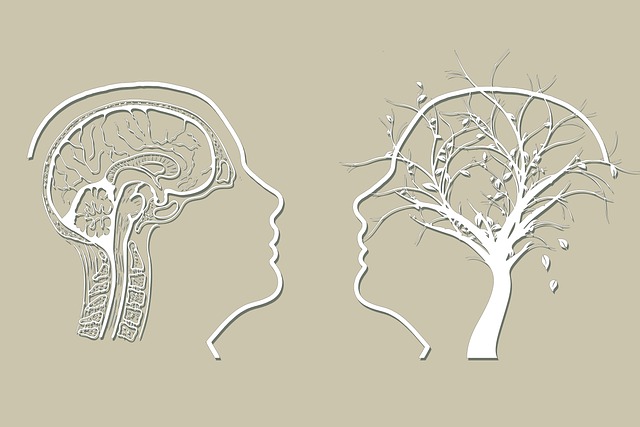Englewood Parenting Skills Therapy is a comprehensive approach to building resilience through the RFM framework (Recovery, Flexibility, Mastery), compassion cultivation, and structured activities. This evidence-based method teaches emotional regulation, stress coping, and conflict resolution skills, fostering a growth mindset and enhancing well-being. By focusing on family dynamics, communication, and cultural sensitivity, Englewood Parenting Skills Therapy empowers parents to strengthen bonds while inculcating essential life skills in their children. Their continuous support through reflection sessions, support groups, and community initiatives ensures long-lasting positive impacts.
“Discover the power of Resilience-focused Family Therapy with a unique approach—the RFM (Resilience, Flexibility, and Mastery) model. This comprehensive guide explores how integrating RFM principles into therapy sessions enhances family dynamics and builds resilience. From understanding the core concepts to practical strategies, we delve into the benefits for both parents and children, particularly highlighting the influence of Englewood Parenting Skills. Learn effective methods to foster adaptability and strengthen familial bonds through this transformative process.”
- Understanding RFM and its Role in Resilience Building
- Implementing Resilience Exercises in Therapy Sessions
- The Impact of Englewood Parenting Skills on Families
- Strategies for Sustaining Resilience Over Time
Understanding RFM and its Role in Resilience Building

Resilience is a critical skill that equips individuals to navigate life’s challenges and setbacks with strength and adaptability. At Englewood Parenting Skills Therapy, we recognize that building resilience isn’t just about toughening up; it’s about cultivating inner resources and strategies to thrive despite adversity. That’s where RFM (Recovery, Flexibility, and Mastery) comes in. This evidence-based framework serves as a roadmap for developing resilience by focusing on three key components:
Recovery refers to an individual’s ability to bounce back from difficult experiences, while flexibility involves adapting to change and uncertainty, and mastery is about developing skills and confidence to overcome challenges. Through targeted exercises and practices, such as Compassion Cultivation Practices, Englewood Parenting Skills Therapy guides individuals and families in integrating RFM into their daily lives. This proactive approach not only fosters resilience but also plays a pivotal role in Burnout Prevention, ultimately contributing to improved well-being and public awareness campaigns development.
Implementing Resilience Exercises in Therapy Sessions

Implementing Resilience Exercises in Therapy Sessions at Englewood Parenting Skills Therapy goes beyond traditional talk therapy. It’s about equipping individuals with practical tools to navigate life’s challenges and build mental wellness. Through structured activities, clients learn to identify and manage their emotions effectively, enhancing their ability to cope with stress and adversity. These exercises often include techniques such as mindfulness meditation, positive self-talk, and conflict resolution skills, all of which are integral parts of the Community Outreach Program Implementation.
The therapy sessions create a safe space for participants to explore their feelings and experiences, fostering a deeper understanding of themselves. By incorporating resilience building exercises, therapists help clients develop a growth mindset, enabling them to view challenges as opportunities for personal development. This proactive approach not only improves mental wellness but also equips individuals with conflict resolution techniques that can be applied in various aspects of life, leading to more fulfilling relationships and overall well-being.
The Impact of Englewood Parenting Skills on Families

Englewood Parenting Skills Therapy offers a transformative approach to family dynamics by empowering parents with effective tools and strategies. This therapy focuses on enhancing communication, fostering emotional intelligence, and promoting resilience within families. Through structured exercises and personalized guidance, parents learn to navigate challenging situations with greater ease, resulting in improved relationships and overall well-being for all family members.
The impact is profound, as it not only strengthens the parent-child bond but also inculcates valuable life skills in children. By integrating Cultural Sensitivity in Mental Healthcare Practice, Englewood Parenting Skills Therapy ensures that each family’s unique cultural background is respected and incorporated into the therapeutic process. This tailored approach addresses specific needs, fostering a safe and supportive environment where families can thrive and grow resiliently together.
Strategies for Sustaining Resilience Over Time

Building resilience is an ongoing process that requires consistent effort and strategic approaches to sustain over time. Following the initial implementation of exercises like those offered by Englewood Parenting Skills Therapy, it’s crucial to integrate these practices into daily routines for long-lasting effects. One effective strategy involves incorporating mental health education programs design tailored for individual needs and cultural sensitivity in mental healthcare practice. This ensures that clients feel heard and understood while learning coping mechanisms suited to their unique circumstances.
Regular reflection sessions, community support groups, and ongoing therapy play pivotal roles in reinforcing resilience. By fostering open dialogue and sharing experiences within supportive networks, individuals can navigate challenges more effectively. Additionally, Mental Health Awareness initiatives at the community level further strengthen this process by promoting a culture of care and understanding, encouraging early intervention, and normalizing conversations around mental health.
The implementation of RFM and resilience-building exercises, especially within Englewood Parenting Skills therapy sessions, offers a comprehensive approach to fostering adaptability and emotional well-being. By integrating these strategies, therapists can empower individuals and families to navigate challenges effectively. Through regular practice, the learned skills not only enhance resilience but also promote long-lasting positive outcomes, ensuring individuals are equipped to face life’s uncertainties with confidence and strength.














